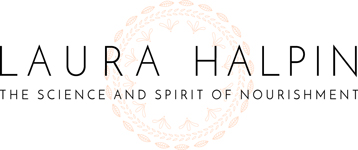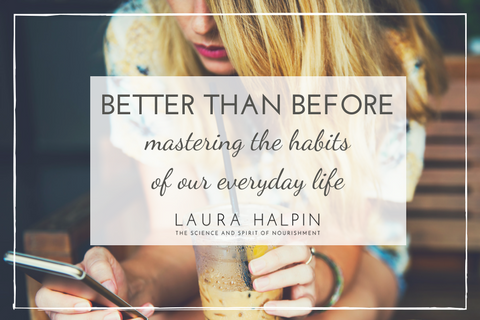
Habits: Got any good ones?
Yesterday, I finished Gretchen Rubin’s Better Than Before: Mastering the Habits of Our Everyday Lives. Over the past year, a question that I’ve found compelling is: “In the absence of crisis, how and why do people change?” (Some would argue that people don’t change: love this scene from Bridesmaids!)
It’s always bugged me when people claim that it takes “X” number of days to build a habit. For one, it’s different for everyone and varies from habit to habit. Secondly, I’m more interested in how quickly and easily we can wipe out a habit. What I appreciate about Better than Before is that Rubin (author of The Happiness Project) explores the subtleties of building and breaking habits. First, she looks at people’s natural tendencies and motivations. Not all of us are motivated in the same way and so there’s no one-size-fits-all way to go about mastering and guarding habits.
Self-awareness Helps
Rubin suggests we explore the raw material of who we are so we can work with ourselves rather than against. For instance, are you a night-owl or a morning person? A simplicity lover or an abundance lover? A starter or a finisher? Do you like taking small steps toward a goal, or do you love to dive in and make radical changes? These distinctions are important and without understanding them, we can end up beating our heads against a wall.
Most importantly, how are we motivated? For a quick look into your natural response to expectations, check out her Four Tendencies Quiz.
Habits are different than Willpower
 The most important point for me was Rubin’s thoughts on habits and self-control. According to Rubin, self-control requires effort and decision making (Should I exercise this morning? Should I eat this slice of chocolate cake in front of me? Should I contact this ex-boyfriend on Facebook?). The more we have to exercise self-control, often the more worn down we get. Yes, it does take self-control to establish habits. Yet once a habit is in place, by definition, it requires little thought and no decision making. (For example, we usually don’t have to argue with ourselves about fastening our seatbelts or taking a shower). Rubin writes, “Habits make change possible by freeing us from decision making and from using self-control.”
The most important point for me was Rubin’s thoughts on habits and self-control. According to Rubin, self-control requires effort and decision making (Should I exercise this morning? Should I eat this slice of chocolate cake in front of me? Should I contact this ex-boyfriend on Facebook?). The more we have to exercise self-control, often the more worn down we get. Yes, it does take self-control to establish habits. Yet once a habit is in place, by definition, it requires little thought and no decision making. (For example, we usually don’t have to argue with ourselves about fastening our seatbelts or taking a shower). Rubin writes, “Habits make change possible by freeing us from decision making and from using self-control.”
So, ultimately, what we want to do is work within the framework of our hardwiring to turn desirable behaviors into habits. Then we want to understand what can threaten habits once they’re in place. Rubin explores the ins and outs of protecting our habits. It’s a good read, especially paired with a book I read last year called The Neuroscience of Change by Kelly McGonigal, PhD.
I’m excited to incorporate this information into my work with individuals and groups.
September’s Revitalizing Cleanse: Individualizing a Group Program
At least twice a year, I lead a food-based (rather than product-based) cleanse. After the revelry and ease of summer, September is a perfect time to add some structure and tidy up/create habits.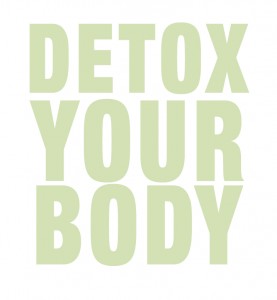
You’ve probably read about the importance of detoxifying in the past. Ultimately, our livers were not designed to help our bodies get rid of the thousands of toxins we’re exposed to. When our livers are overworked, toxins are stored in our fat tissue rather than excreted from our bodies. These toxins leave us inflamed and can affect and harm every system of the body.
In addition, cleanses ideally eliminate common problematic foods. After a period of going without certain foods, we can “test” to see if we react to foods when we add them back in. Food sensitivities are so common and can be the reason behind chronic conditions such as moodiness and anxiety, digestive disorders , skin issues, auto-immune conditions, migraines, brain fog, joint aches and weight gain.
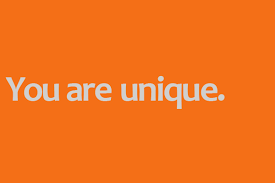 In response to Rubin’s book, I am thinking about the group workshops I teach. Even though we’re working in a small group, it’s still important to allow for and support one’s individual tendencies. For example, you might be motivated by outside accountability than your own inner resolve. You may start strong, but have a hard time finishing. Maybe you’re intimidated at the thought of cooking your food or feel triggered by restricting your food choices. There has got to be room for all this individuality in my classes.
In response to Rubin’s book, I am thinking about the group workshops I teach. Even though we’re working in a small group, it’s still important to allow for and support one’s individual tendencies. For example, you might be motivated by outside accountability than your own inner resolve. You may start strong, but have a hard time finishing. Maybe you’re intimidated at the thought of cooking your food or feel triggered by restricting your food choices. There has got to be room for all this individuality in my classes.
What creates this space is communication, awareness and compassion. I like to know what is easy and what is difficult for people. I love to work with clients to identify the obstacles to change. This is the part of my work that motivates me.
If you’re interested in learning more about the Revitalizing Cleanse this September, read more…
Learning as I go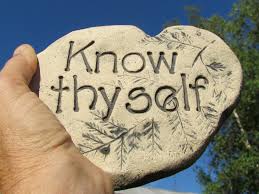
What I’m finding in this year long study into habits, will-power and change is that the more I know and understand myself, the easier it is to work with myself in a supportive, non-judgmental way. When I can work with myself, change comes. Wishing you the space and focus to work with yourself rather than against.
Warmly,
Laura
